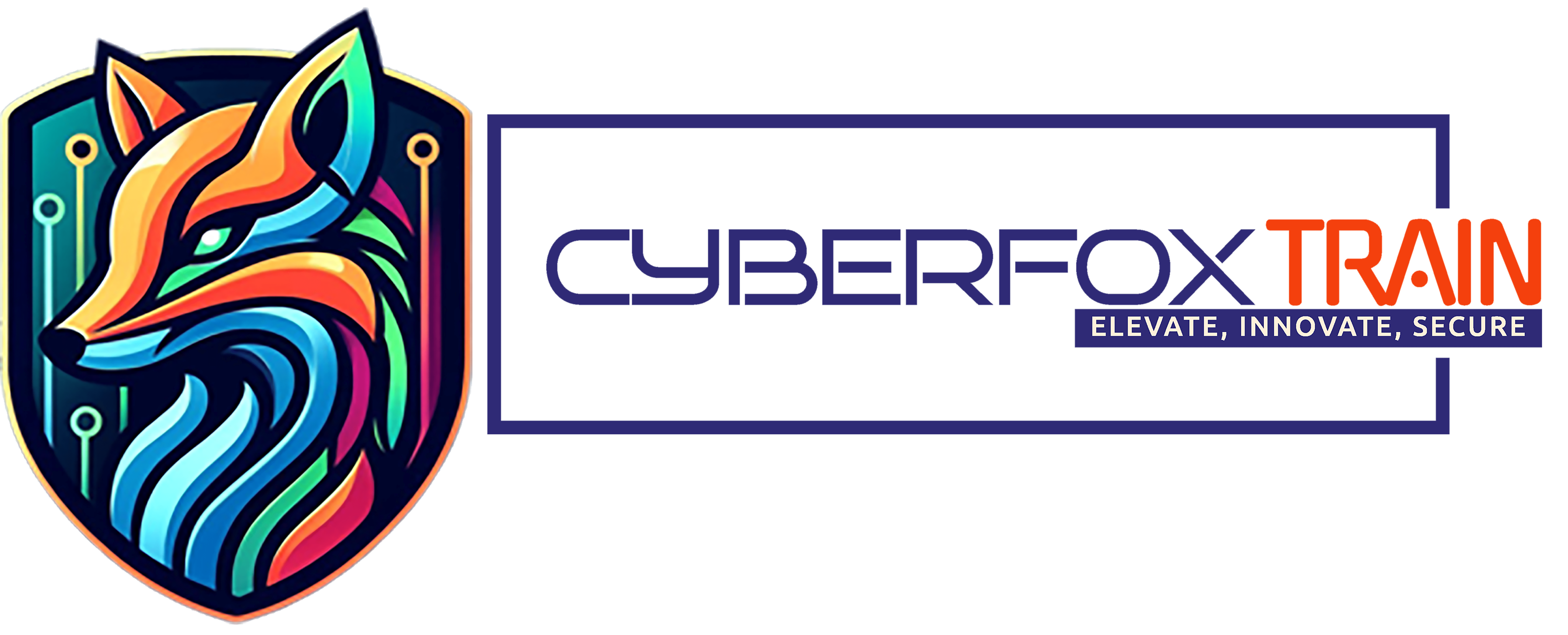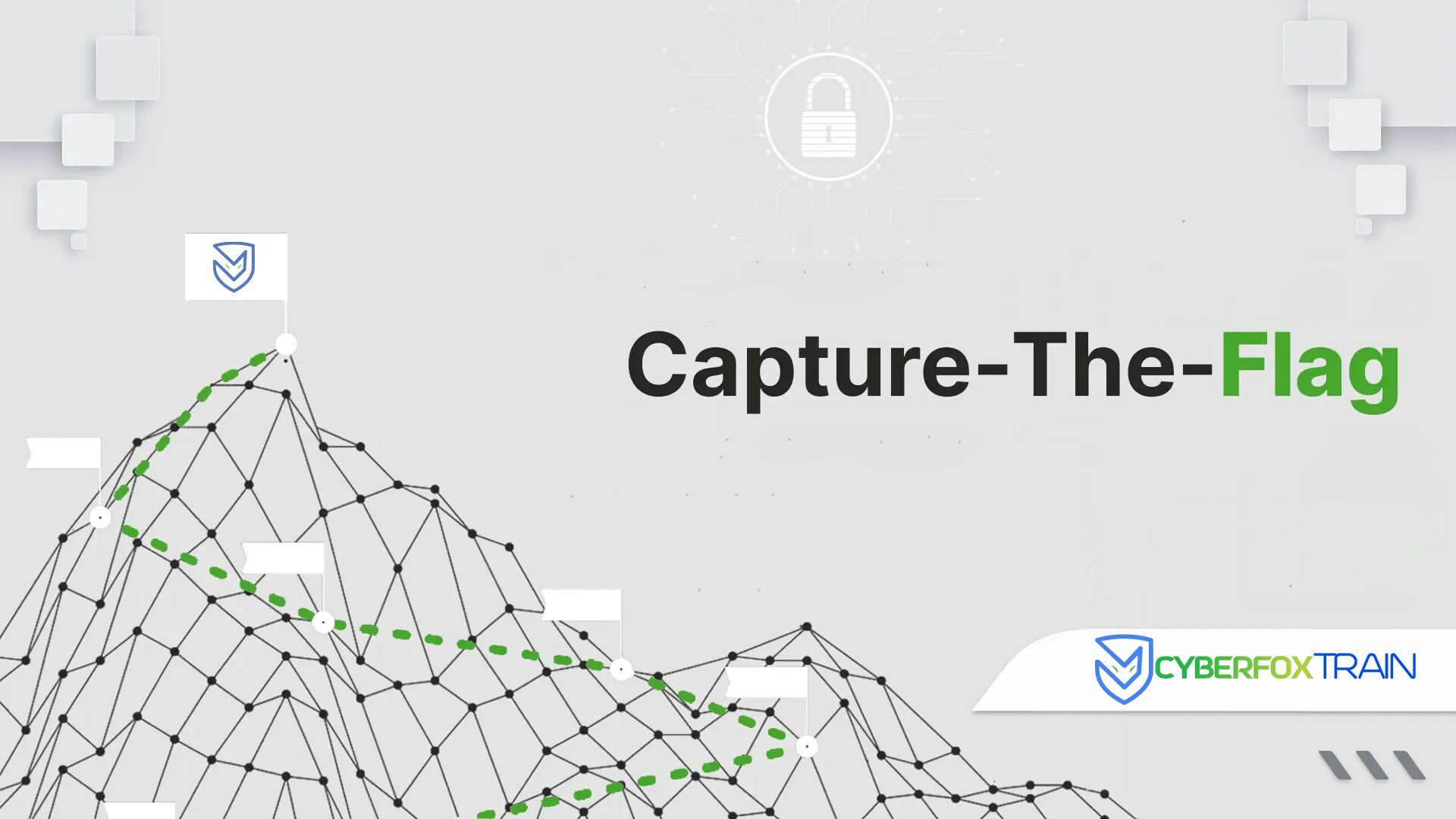The CyberFox Train Capture the Flag (CTF) Training Program is a comprehensive and hands-on training program designed to equip participants with the skills and knowledge needed to excel in CTF competitions. CTFs are simulated cybersecurity challenges that require participants to solve a wide range of puzzles and problems related to cryptography, web exploitation, reverse engineering, binary exploitation, forensics, network security, and more. This program offers an immersive learning experience through practical, real-time challenges hosted on CTF machines.
Objective:
The primary objective of this training program is to empower participants with the skills and expertise required to succeed in CTF competitions. By the end of the program, participants will:
- Understand fundamental concepts in cryptography, including classical ciphers and modern encryption techniques.
- Master web exploitation techniques, including identifying and exploiting web application vulnerabilities.
- Gain proficiency in reverse engineering, binary analysis, and exploiting binary programs.
- Develop expertise in forensic analysis and steganography to uncover hidden information.
- Acquire knowledge of network security, including protocol analysis and vulnerability identification.
- Be well-versed in miscellaneous challenges, programming, and secure coding.
- Enhance their cybersecurity general knowledge and trivia.
- Learn about the scoring mechanisms and dynamics of CTF competitions.
Target Audience:
This training program is ideal for:
- Aspiring cybersecurity professionals looking to enhance their practical skills and compete in CTF events.
- Students and enthusiasts interested in cybersecurity, cryptography, and ethical hacking.
- IT professionals seeking to deepen their understanding of cybersecurity concepts.
- Security researchers and analysts aiming to improve their problem-solving abilities.
- Anyone passionate about the ever-evolving field of cybersecurity and CTF challenges.
Benefits:
Upon completing the CyberFox Train Capture the Flag (CTF) Training Program, participants can expect the following benefits:
-
Skill Mastery:
Participants will gain hands-on experience and proficiency in a wide range of cybersecurity domains, including cryptography, web exploitation, reverse engineering, and more.
-
Competitive Edge: Armed with practical knowledge, participants will be well-prepared to excel in CTF competitions, gaining recognition and opportunities in the cybersecurity community.
-
Real-World Application: The program emphasizes practical application, allowing participants to apply their skills to real-time challenges commonly encountered in the cybersecurity field.
-
Career Advancement: This training program can open doors to cybersecurity careers, enhance job prospects, and provide a strong foundation for future learning and certifications.
-
Networking: Participants will have the chance to connect with like-minded individuals and cybersecurity experts, fostering valuable professional relationships.
-
Comprehensive Understanding: The program covers a wide spectrum of cybersecurity topics, ensuring a holistic understanding of the field.
-
Live Hands-on Challenges: Participants will have the opportunity to tackle CTF-style challenges on dedicated machines, enhancing their problem-solving abilities in a dynamic environment.
Course Outline:
Capture the Flag (CTF) is a popular cybersecurity competition that challenges participants to solve a variety of tasks related to computer security, cryptography, reverse engineering, web exploitation, binary exploitation, and more. The specific syllabus for a CTF may vary depending on the event’s organizers and difficulty level, but here are some common topics and tasks that you might encounter in a CTF:
- Cryptography:
- Classical ciphers (e.g., Caesar cipher, Vigenère cipher)
- Modern symmetric and asymmetric encryption
- RSA, Diffie-Hellman, ECC (Elliptic Curve Cryptography)
- Cryptanalysis and code-breaking techniques
- Live Hand-on – CTF Machine to Solve Real-Time Challenges
- Web Exploitation:
- Web application vulnerabilities (e.g., SQL injection, XSS, CSRF)
- URL manipulation and parameter tampering
- Server-side and client-side attacks
- Bypassing authentication mechanisms
- Live Hand-on – CTF Machine to Solve Real-Time Challenges
- Reverse Engineering:
- Decompiling and disassembling binary code
- Understanding assembly language
- Patching and modifying binary executables
- Extracting hidden information from binaries
- Live Hand-on – CTF Machine to Solve Real-Time Challenges
- Binary Exploitation (Pwn):
- Buffer overflows and stack smashing
- Format string vulnerabilities
- Return-oriented programming (ROP)
- Exploiting binary programs to gain control
- Live Hand-on – CTF Machine to Solve Real-Time Challenges
- Forensics and Steganography:
- File analysis and metadata extraction
- Hidden information in files (e.g., steganography)
- Memory forensics and volatile data analysis
- Live Hand-on – CTF Machine to Solve Real-Time Challenges
- Network Security:
- Network protocols and packet analysis
- Network traffic sniffing and analysis
- Identifying and exploiting network vulnerabilities
- Live Hand-on – CTF Machine to Solve Real-Time Challenges
- Miscellaneous Challenges:
- Steganography in images, audio, or other media
- Programming challenges (e.g., scripting, algorithmic puzzles)
- Secure coding and vulnerability patching
- Live Hand-on – CTF Machine to Solve Real-Time Challenges
- Trivia and General Knowledge:
- Cybersecurity concepts and history
- Famous hacks and vulnerabilities
- Current events and trends in cybersecurity
- Live Hand-on – CTF Machine to Solve Real-Time Challenges
- Capture the Flag Scoring Mechanism:
- CTFs often award points based on the difficulty and completion of tasks.
- Teams or individuals compete to solve as many challenges as possible within a time limit.
- Some CTFs have a jeopardy-style scoring system, where each challenge has a predefined point value based on its difficulty.
- In other cases, CTFs may follow an “attack-defense” format where teams protect their services while simultaneously trying to exploit others’ services.
- Live Hand-on – CTF Machine to Solve Real-Time Challenges
Remember that the exact topics and challenges will vary depending on the CTF competition, and some events may focus more heavily on certain areas of cybersecurity. To prepare for a CTF, participants typically study various aspects of cybersecurity, computer networks, programming, and reverse engineering techniques. Additionally, participating in past CTFs or online platforms dedicated to CTF challenges can be a great way to gain experience and improve your skills.
Course Features
- Lecture 0
- Quiz 0
- Duration 5 days
- Skill level Expert
- Language English
- Students 0
- Assessments Yes






